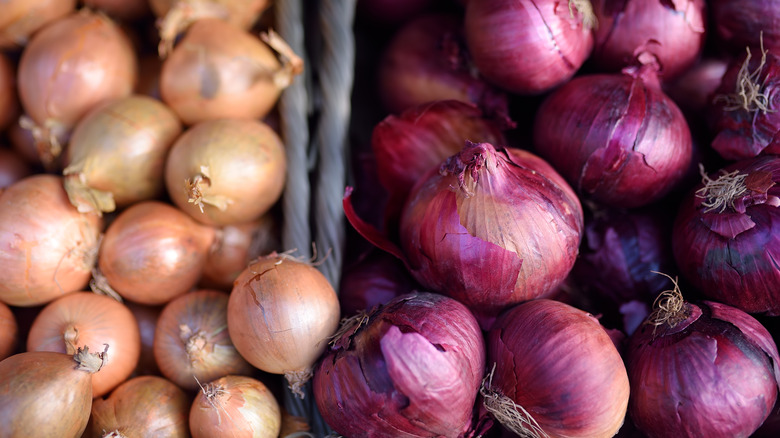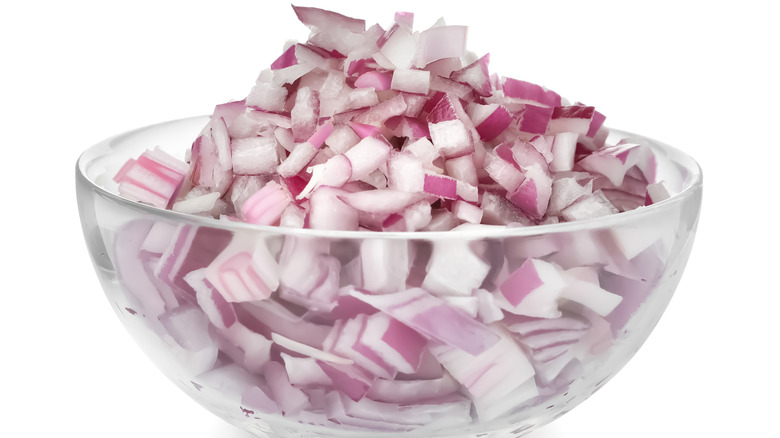Raw Versus Cooked Onions: Which One Is Better For You?
Despite being a healthy food, onions rarely get the attention they deserve, mostly because of their odor. They're certainly packed with nutrients, though. WebMD notes that onions contain vitamins B6, which is important for brain development as well as keeping your immune system healthy (via Mayo Clinic), and vitamin C, which also boosts your immune system (per Everyday Health). Onions also contain potassium, manganese, and copper. The root vegetable can even help prevent blood from clotting, according to a 2012 study in the Nutrition Journal.
From salads to stir-fried dishes, cooked or raw onions add flavor to a variety of different recipes. That being said, cooking reduces the amount of vitamins and minerals in many foods, per Healthline. Onions are no different, but that doesn't mean you can't cook them. While you won't get all of the nutrients in cooked onions, you can still get quite a few (via Healthfully).
Raw onions have a host of potential benefits
When onions are crushed or chopped, the process kicks off an enzymatic reaction that forms sulfur compounds. In fact, these are the same compounds that make your eyes water when you cut onions. They have several benefits, including their ability to help fight cancer, lower blood sugar, and reduce the body's levels of "bad" cholesterol (via Tufts University).
Sulfur may also help break down blood clots, which might reduce the risk of having a stroke or developing heart disease. However, steaming onions has been seen to dramatically reduce their ability to reduce blood clotting (via Nutrition Journal). Additionally, the outer layers of onions contain quercetin, which has antioxidant qualities and can help fight the damage done by free radicals. Interestingly, some experts say that when onions are lightly cooked, their quercetin concentration may increase.
To sum it up: While you can get some benefits from cooked onions, eating them raw is still (mostly) the way to go.


